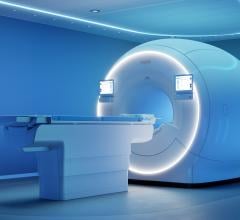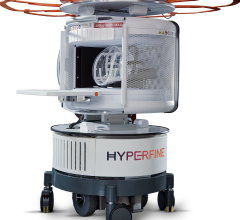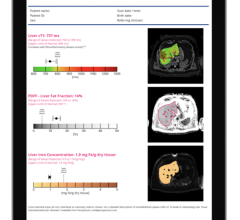
FDA Approves Biotronik Entovis Pacemaker System With ProMRI Technology
May 8, 2014 — The Food and Drug Administration (FDA) has granted Biotronik approval for its Entovis pacemaker system with ProMRI technology. The Entovis system allows patients to undergo magnetic resonance imaging (MRI) scans with a limited exclusion zone. FDA approval covers both single chamber (SR-T) and dual chamber (DR-T) Entovis pacemakers when implanted with Setrox pacing leads.
Approximately 50,000 single-chamber pacemakers are currently implanted in the United States each year; until now, these patients have not been able to access MRI scans. Biotronik is the first company in the United States to offer both single- and dual-chamber pacemakers approved for use in an MRI environment. Also, Biotronik is the first company worldwide to offer the current generation of pacing leads with ProMRI pacemakers. Setrox, including versions released under other names, is the most used lead in MRI pacemakers on the market today with over 850,000 leads sold worldwide.
“With the Entovis longevity and the history of lead reliability, this is a system that will serve a wide variety of pacemaker patients for the foreseeable — and unforeseen — future needs,” said Carleton Nibley, M.D., electrophysiologist at John Muir Medical Center in Concord and Walnut Creek, Calif., and a participant in the ProMRI study.
The Entovis system presents advantages over existing pacemakers approved as MR conditional. Patients with approved Entovis pacemakers and leads need only alert radiology staff of their device and the staff will verify the patient meets the criteria to undergo an MRI scan.
Several million patients are currently implanted with pacemaker systems worldwide, and recent studies estimate that a sizeable portion of them will develop a clinical need for an MRI scan during their lifetimes. MRI scans often provide improved diagnostic capabilities for certain diseases or conditions that cannot be adequately examined by X-ray, computerized tomography (CT) or ultrasound. However, the strong forces applied during MRIs can have a negative effect on the pacing system and have been contraindicated for pacemaker patients in the past.
FDA approval comes only 16 months after the initial clinical study was launched, and five months after the approval of that study’s expansion to include full-body MRI scans. These studies are required by FDA for product evaluation, and are designed to assess the safety and efficacy of Biotronik’s existing single- and dual-chamber Entovis pacemaker systems and Setrox 53 and 60cm leads during MRI scans. These devices are already commercially available in the U.S., but lacked FDA approval for use in the MRI environment.
Entovis devices include Biotronik Home Monitoring technology, which provides daily monitoring of the patient’s device, and offer the most advanced physiological therapy available via closed loop stimulation (CLS). The Setrox active-fixation pacing leads have a flexible distal end, fractal coating, and steroid elution to ensure excellent handling and stable fixation, as well as optimal electrical performance.
For more information: www.biotronik.com


 January 21, 2026
January 21, 2026 








